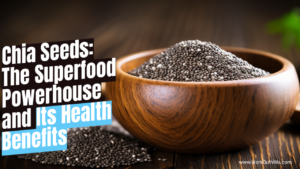Avocados: A Comprehensive Guide to Health Benefits
Avocados have gained immense popularity in recent years, and for good reason. These green fruits are delicious and packed with essential nutrients that can promote overall health and well-being.
Avocados are a rich source of vitamins, minerals, and healthy fats crucial for a balanced diet. Incorporating this versatile food into your meals can provide many health benefits.
One significant advantage of avocados is their role in maintaining heart health. Avocado has low cholesterol and contains monounsaturated fats, which reduce harmful cholesterol levels and decrease the risk of heart disease.
Additionally, the high fiber content found in avocados promotes healthy digestion and helps regulate blood sugar levels. Adding avocados to your diet can boost your fiber intake, especially if you have trouble getting enough from other sources like vegetables, fruits, and whole grains.
Understanding the Role of Avocados in a Balanced Diet
Avocados play a crucial role in maintaining a balanced and nutritious diet. Creamy fruits are delicious and have many health benefits. They provide important nutrients that promote well-being. One notable benefit of avocados is their potential to aid weight management.
Unlike other high-fat foods, the monounsaturated fats found in avocados can help increase feelings of satiety, which may prevent overeating. These fruits are also a great source of dietary fiber, with a medium-sized avocado containing approximately 10 grams of fiber.
This fiber promotes digestive health, regulates blood sugar levels, and supports healthy weight management.
Moreover, avocados have been linked to numerous health benefits, including improved heart health. Thanks to their high content of monounsaturated fats, avocados can help lower harmful cholesterol levels and reduce the risk of cardiovascular disease.
Research suggests that Oleic acid in avocados may enhance the body’s ability to absorb antioxidants from other foods, such as berries. Furthermore, avocados may contribute to optimal blood pressure levels.
Their potassium-rich composition helps counterbalance the effects of sodium, a mineral often associated with increased blood pressure. Incorporating avocados into a balanced diet can positively affect overall cardiovascular health.
• Avocados can aid in weight management by increasing feelings of satiety and preventing overeating.
• They are a great source of dietary fiber, promoting digestive health and regulating blood sugar levels.
• The high content of monounsaturated fats in avocados helps lower harmful cholesterol levels and reduce the risk of cardiovascular disease.
• Oleic acid in avocados enhances the body’s ability to absorb antioxidants from other foods.
• Avocados contribute to optimal blood pressure levels due to their potassium-rich composition.
The Link Between Avocado Consumption and Heart Health
Avocado consumption has been increasingly studied for its potential impact on heart health. With heart disease being a leading cause of death worldwide, finding ways to reduce the risk is paramount.
Avocados, known for their creamy texture and rich taste, offer a range of health benefits that make them a heart-healthy food choice.
One key factor that makes avocados beneficial for the heart is their fat content. Despite their reputation as a fatty fruit, the fat found in avocados is predominantly monounsaturated, which has been shown to affect cholesterol levels positively.
This type of fat can help lower LDL (bad) cholesterol while increasing HDL (good) cholesterol levels. Also, avocados contain omega-3 fatty acids, reducing inflammation and promoting good heart health.
By incorporating avocados or avocado oil into your diet, you can enjoy the heart-protective benefits of these healthy fats.
Avocados also contain soluble and insoluble fiber, further contributing to their positive impact on heart health.
Soluble fiber helps lower cholesterol levels by binding to dietary cholesterol and removing it from the body. It also helps regulate blood sugar levels and promotes a feeling of fullness, aiding in weight management.
On the other hand, the insoluble fiber in avocados supports healthy digestion by adding bulk to the stool and promoting regular bowel movements.
In addition to their fiber content, avocados are a secret powerhouse of nutrients. They are rich in potassium, crucial for maintaining healthy blood pressure levels and promoting proper heart function.
Furthermore, avocados contain various vitamins, such as vitamins E and K, and antioxidants, which help reduce oxidative stress and inflammation. All these factors combined contribute to avocados’ potential to positively impact heart health and reduce the risk of heart disease.
The Surprising Ways Avocados Can Aid in Weight Loss
Avocados, known for their creamy texture and rich flavor, have become famous for those seeking to shed some pounds.
But what makes these fruits so effective in aiding weight loss? One of the surprising ways avocados assist in shedding excess pounds is by promoting a feeling of satiety. When included in meals, avocados help to keep hunger at bay, preventing overeating.
This is due to their high fiber content, which helps to regulate blood sugar levels and promotes a sense of fullness. In addition, avocados contain healthy fats that provide a sustained energy source, making them an excellent addition to a weight loss journey.
Incorporating avocados into a balanced diet can also be a game-changer regarding weight loss. While avocados do contain fat, it is essential to note that not all fats are created equal.
The fat in avocados is heart-healthy monounsaturated, which can aid in weight management. These healthy fats have been linked to improved brain health and mental well-being, ensuring that you stay focused and motivated on your weight loss goals. However, as with any food, portion control is critical.
A rule of thumb is to enjoy a daily avocado as part of a well-rounded meal that includes leafy greens, lean proteins, and whole grains without compromising your weight loss efforts. Combining these foods can create a filling and nutritious meal that will keep you satisfied throughout the day. However, it is essential to be mindful of portion sizes as avocados have a high fat content, which may contribute to unintended weight gain if consumed in excess.
Exploring the Fiber Content of Avocados and its Impact on Digestive Health
Avocados, often hailed as a nutrient-dense fruit, are delicious and provide numerous health benefits. One key aspect of avocados that positively impacts digestive health is their high fiber content.
Fiber, an essential component of a balanced diet, is crucial in maintaining a healthy digestive system.
Avocados are a great source of dietary fiber, containing about 6-7 grams per serving. Fiber is essential for promoting regular bowel movements and preventing constipation.
It also helps regulate blood sugar levels, keeping them stable throughout the day. You can increase your fiber intake and support a healthy digestive system by including avocados in your diet, along with plenty of fruits, vegetables, and whole grains.
Furthermore, avocados contain other essential vitamins and minerals contribute to digestive health. For instance, they are rich in pantothenic acid, which aids in the breakdown of carbohydrates, proteins, and fats.
Avocados also provide Vitamin B6, which promotes the production of essential amino acids necessary to synthesize proteins in the body.
Including avocados in your diet can complement other nutritious foods like fermented foods and cruciferous vegetables, known for their positive impact on digestion and reducing the risk of colon cancer.
In summary, avocados are not only a favorite food for many, but they also offer a range of health benefits, particularly for digestive health.
Their high fiber content and essential vitamins and minerals contribute to maintaining a healthy digestive system and reducing the risk of various health concerns, such as constipation, colon cancer, and unstable blood sugar levels.
Incorporating avocados into your diet can be a simple and delicious way to support your overall well-being.
The Role of Avocados in Eye Health and Protection Against Macular Degeneration
Avocados, often called nature’s butter, have gained recognition for their numerous health benefits.
Aside from their creamy texture and delicious taste, these fruits are rich in essential nutrients that support eye health and protect against macular degeneration. How exactly do avocados contribute to maintaining healthy eyes?
Avocados contain vital nutrients such as lutein and zeaxanthin, essential antioxidants known for their protective effects on the eyes. These antioxidants help filter harmful high-energy blue light and protect the macula, an area in the retina’s center responsible for maintaining sharp vision.
Studies have shown that diets high in lutein and zeaxanthin can reduce the risk of age-related macular degeneration, a leading cause of vision loss in older adults. Incorporating avocados into your diet can help increase your intake of these nutrients and potentially reduce the risk of developing macular degeneration.
Uncovering the Secrets of Avocado Oil: A Closer Look at its Nutritional Content
Avocado oil, derived from the nutritious and versatile avocado fruit, is gaining popularity as a healthy alternative in cooking and skincare routines. Packed with essential fatty acids, antioxidants, and vitamins, this oil offers numerous benefits for our well-being. Let’s delve into its nutritional content to understand the positive impact it can have on our health. The primary type of monounsaturated fat in avocados is oleic acid, the primary fatty acid in olive oil.
One of the notable nutritional properties of avocado oil is its high antioxidant protection. Antioxidants are crucial for combating the harmful effects of free radicals in the body, which can lead to various health issues such as heart attacks and nutrient deficiencies.
Avocado oil contains carotenoids, such as lutein and zeaxanthin, which are particularly beneficial for eye health. These carotenoids help protect the delicate eye tissues from damage caused by UV light and oxidative stress, reducing the risk of macular degeneration.
Adding avocado oil to your diet can provide an excellent source of these essential antioxidants for maintaining healthy vision.
In addition to its antioxidant content, avocado oil also maintains regular bowel movements and improves digestive health. This oil is rich in monounsaturated fats, which support the absorption of nutrients and aid in preventing nutrient deficiencies.
Moreover, avocado oil contains an ethylene gas that helps regulate bowel movements and promotes healthier digestion. Incorporating avocado oil into your plant-based diet can provide the necessary fats and help maintain energy levels throughout the day while supporting the body’s natural detoxification processes.
However, it is essential to note that while avocado oil offers numerous health benefits, it should be consumed in moderation, like any other oil, for optimal results.
Avocados and their Impact on Blood Pressure and Cardiovascular Disease Risk
Avocados have become a staple in many health-conscious diets due to their potential impact on blood pressure and cardiovascular disease risk.
These creamy fruits are delicious and packed with essential nutrients that support optimal health. With a wide range of beneficial properties, avocados can play a vital role in maintaining heart health and preventing chronic diseases.
One of the critical aspects that make avocados heart-healthy is their nutrient content. Avocados contain a unique combination of healthy fats, including monounsaturated fats, which are known to promote cardiovascular health.
These fats can help improve cholesterol levels and reduce the risk of adverse health outcomes related to heart disease. A study found that replacing saturated fats with healthy fats in avocados led to significant improvements in blood lipid profiles.
Moreover, avocados are a good source of potassium, a mineral that helps regulate blood pressure by counteracting the effects of sodium. Consuming avocados as part of a healthy diet can contribute to maintaining optimal blood pressure levels and reducing the risk of cardiovascular disease.
Avocados and Brain Health: How this Fruit Supports Mental Well-being
Avocados play a crucial role in supporting mental well-being and brain health. These nutrient-rich fruits offer many health benefits thanks to their high content of essential vitamins, minerals, and healthy fats. The brain relies on proper nutrition to function optimally, and avocados provide vital nutrients. With their many health-promoting properties, avocados are an incredibly nutritious fruit.
One way avocados support mental well-being is through their adequate fiber content. Fiber is essential for a healthy digestive system but also plays a vital role in brain health.
Research conducted by the Food Science and Nutrition Department has shown that a fiber-rich diet can reduce the risk of type 2 diabetes and metabolic syndrome, both associated with cognitive decline.
Avocados and other high-fiber foods, such as green vegetables and citrus fruits, can maintain stable blood sugar levels, reduce inflammation, and improve overall brain function.
Moreover, avocados are a significant source of vitamins C and E. These powerful antioxidants protect the brain from oxidative stress caused by free radicals.
Vitamin C helps absorb vitamin E, enhancing its ability to cross the blood-brain barrier and exert its protective effects. Including fresh fruit, such as avocados, can ensure adequate vitamin C and E intake that supports optimal brain function and protects against age-related cognitive decline.
Additionally, the presence of these vitamins in avocados contributes to lower blood cholesterol levels, which can promote healthy blood flow to the brain and reduce the risk of cardiovascular diseases that may impair cognitive abilities.
The Hidden Benefits of Avocado Toast: Why this Trendy Dish is Good for You
Avocado toast has been a popular culinary trend in recent years and with good reason. This trendy dish offers many hidden benefits contributing to overall health and well-being.
One of the standout aspects is the combination of avocados with other nutritious ingredients, such as allium vegetables and ancient grains.
Allium vegetables, including garlic and onions, are known for their rich antioxidant content and potential anti-cancer properties. When paired with the creamy goodness of avocado, these flavorsome vegetables enhance the nutritional value of the toast.
Additionally, including ancient grains like quinoa or spelled provides a healthy dose of fiber, protein, and essential minerals. These grains also boast a lower glycemic index than refined grains, making avocado toast an excellent choice for those looking to maintain a healthy weight or regulate blood sugar levels.
Furthermore, avocados add their nutritional punch to the dish. Rich in beneficial nutrients, such as potassium, vitamin K, and vitamin E, avocados also contain notable amounts of folate, making them an ideal addition to any diet. Adequate folate intake is significant for pregnant women or those planning to conceive, as it supports the development of a healthy baby.
Individuals can ensure they consume adequate amounts of this vital nutrient by including avocado toast in their diet. Additionally, combining these various components makes avocado toast a potential secret to longevity, dispelling the notion that there are any “secrets” to a healthy and fulfilling life.
Nutrition Facts Label
| Nutrient | Amount (per 100g) |
|---|---|
| Calories | 160 kcal |
| Total Fat | 14.7g |
| – Saturated Fat | 2.1g |
| – Monounsaturated Fat | 9.8g |
| – Polyunsaturated Fat | 1.8g |
| Cholesterol | 0mg |
| Sodium | 7mg |
| Total Carbohydrates | 8.5g |
| – Dietary Fiber | 6.7g |
| – Sugars | 0.7g |
| Protein | 2g |
| Vitamin C | 10mg (17% DV) |
| Vitamin E | 2.1mg (10% DV) |
| Vitamin K | 21µg (26% DV) |
| Folate | 81µg (20% DV) |
| Vitamin B6 | 0.3mg (13% DV) |
| Potassium | 485mg (14% DV) |
| Magnesium | 29mg (7% DV) |
| Iron | 0.6mg (3% DV) |
| Phosphorus | 52mg (5% DV) |
| Zinc | 0.6mg (4% DV) |
Note: The values mentioned are approximate and can vary based on the variety and ripeness of the avocado. DV stands for Daily Value, which is a guide to the nutrients in one serving of food.
What are the health benefits of avocados?
Avocados are a nutritional powerhouse, offering a variety of health benefits. They are rich in healthy fats, fiber, and numerous vitamins and minerals. Avocados have been linked to improved heart health, weight loss, better digestion, eye health, and brain function.
How do avocados contribute to a balanced diet?
Avocados are a versatile and nutritious addition to a balanced diet. They provide essential healthy fats necessary for brain functioning and nutrient absorption. Avocados also contain fiber, vitamins, and minerals that support overall health and well-being.
Can avocado consumption improve heart health?
Yes, avocados have been associated with improved heart health. They are high in monounsaturated fats, which can help lower harmful cholesterol levels and reduce the risk of heart disease. Avocados also contain potassium, a mineral that supports healthy blood pressure levels.
Can avocados aid in weight loss?
Avocados can be beneficial for weight loss. Despite their high-fat content, the fats in avocados are healthy and can help promote feelings of fullness and reduce cravings. Additionally, avocados are fiber-rich, which can aid digestion and support weight management.
How does avocado consumption impact digestive health?
Avocados are an excellent dietary fiber source, crucial in maintaining a healthy digestive system. Fiber helps regulate bowel movements, promotes regularity, and prevents constipation. Including avocados in your diet can support good digestive health.
Do avocados have any benefits for eye health?
Yes, avocados contain antioxidants, such as lutein and zeaxanthin, which are beneficial for eye health. These antioxidants help protect against macular degeneration and cataracts, two common age-related eye conditions.
What is the nutritional content of avocado oil?
Avocado oil is derived from avocados and is highly nutritious. It is rich in monounsaturated fats, vitamin E, and antioxidants. Avocado oil can be a healthy alternative to other cooking oils and has been linked to various health benefits.
Can avocados impact blood pressure and cardiovascular disease risk?
Yes, avocados may help lower blood pressure levels and reduce the risk of cardiovascular disease. Their potassium helps regulate blood pressure, while their healthy fats and antioxidants support heart health.
How do avocados support brain health?
Avocados contain healthy fats that are essential for brain health. These fats contribute to proper brain functioning and support cognitive abilities. Additionally, avocados provide nutrients like vitamin K and folate, necessary for mental well-being.
What are the hidden benefits of avocado toast?
Avocado toast offers a convenient and delicious way to enjoy the health benefits of avocados. It combines healthy fats, fiber, vitamins, and minerals. Avocado toast can support heart health, aid in weight loss, improve digestion and contribute to overall well-being.




